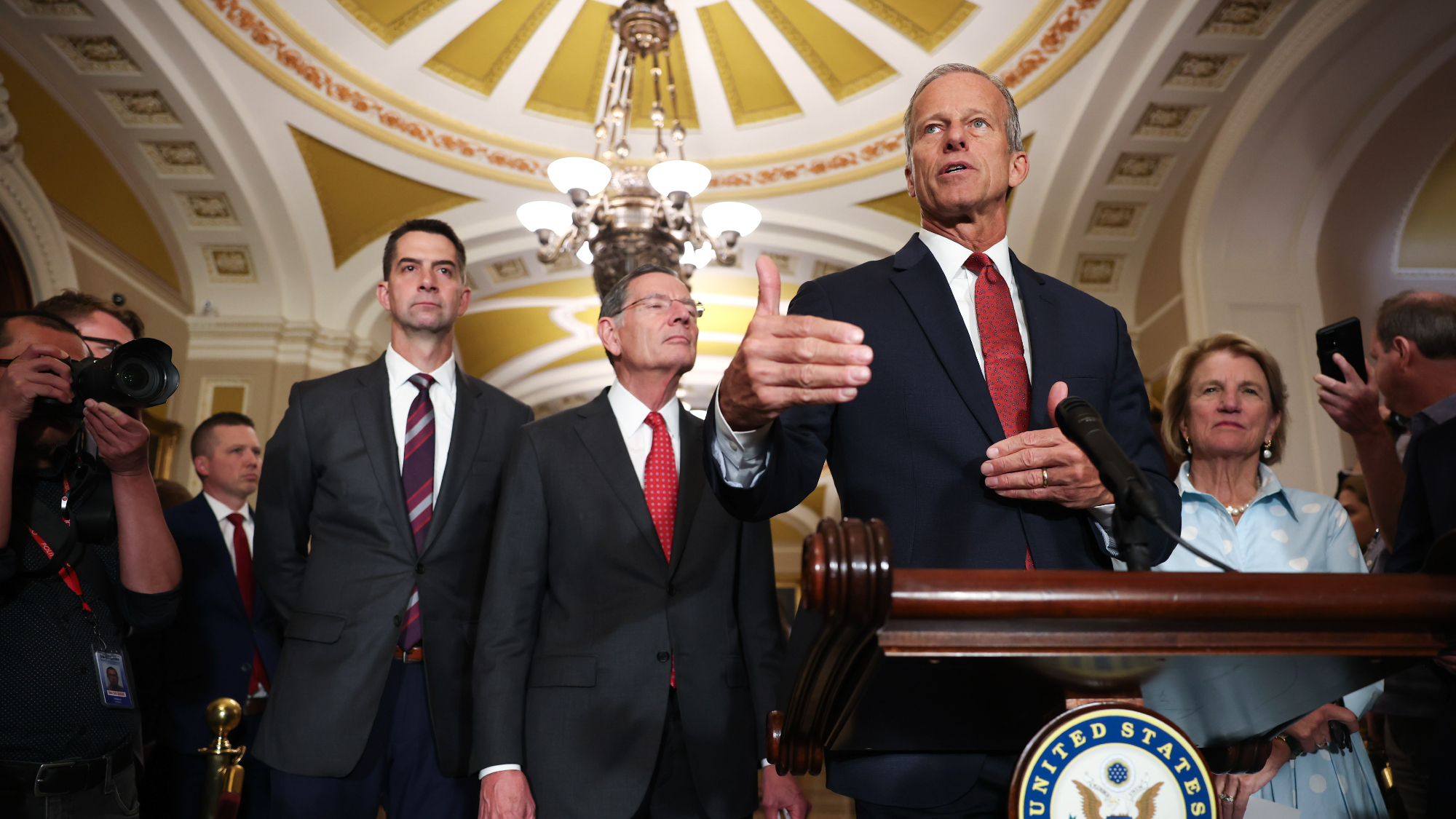GOP races to revise megabill after Senate rulings
A Senate parliamentarian ruled that several changes to Medicaid included in Trump's "One Big Beautiful Bill" were not permissible


A free daily email with the biggest news stories of the day – and the best features from TheWeek.com
You are now subscribed
Your newsletter sign-up was successful
What happened
Senate Parliamentarian Elizabeth MacDonough dealt Republicans a setback Thursday as they scrambled to get the GOP's massive "One Big Beautiful Bill" to President Donald Trump's desk by his July 4 deadline. MacDonough said several changes to Medicaid were not permissible under the Senate rules Republicans are using to pass the bill with a simple majority, leaving a $250 billion hole in their budget math.
Who said what
Republicans were counting on the disqualified measures, which included cutting provider taxes states use to fund Medicaid and barring certain immigrants from health care programs, to offset more than $3.8 trillion in tax cuts and other costly items. MacDonough has "determined that dozens of provisions do not pass muster," in most cases because they made "policy changes with only incidental effects on the budget," The New York Times said. Republicans said they "plan to rewrite some of the struck provisions to make them compliant."
Democrats are "unified against the package as a tax giveaway for the wealthy at the expense of American safety net programs," The Associated Press said. The Congressional Budget Office estimated that the slimmer House version of the megabill would give the wealthiest households $12,000 more a year, while costing the poorest $1,600 and leaving at least 10.9 million Americans without health insurance and 3 million without food assistance.
The Week
Escape your echo chamber. Get the facts behind the news, plus analysis from multiple perspectives.

Sign up for The Week's Free Newsletters
From our morning news briefing to a weekly Good News Newsletter, get the best of The Week delivered directly to your inbox.
From our morning news briefing to a weekly Good News Newsletter, get the best of The Week delivered directly to your inbox.
What next?
Republicans "aren't panicking," but they are "preparing to stay in town and vote through the weekend," Politico said. And "for all the anxiety about the parliamentarian decisions," the "more profound issue" for Republicans is their "internal divides," including in the "narrowly divided House — where pockets of Republicans" are furious about changes their Senate colleagues made to the House bill.
A free daily email with the biggest news stories of the day – and the best features from TheWeek.com
Peter has worked as a news and culture writer and editor at The Week since the site's launch in 2008. He covers politics, world affairs, religion and cultural currents. His journalism career began as a copy editor at a financial newswire and has included editorial positions at The New York Times Magazine, Facts on File, and Oregon State University.
